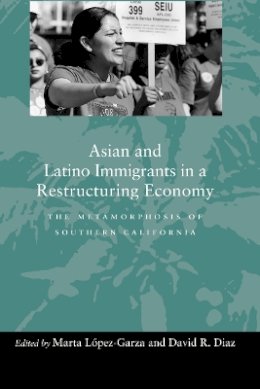Marta López-Garza is Assistant Professor of Women's Studies and Chicano Studies, and David R. Diaz is Assistant Professor of Urban Studies and Chicano Studies at California State University, Northridge.
"This volume is of central importance to the new literature on cities because of its unique coverage. It not only supplies stimulating material on topics neglected by other studies, but also treats the material in an original manner that supplies new insights."—Mark Gottdiener, State University of New York, Buffalo "This important and timely book is exciting because I know of no other comparative work within the context of the new global economy that focuses on changes in one metropolitan area. The idea of comparing Asian and Latino immigrant experiences is an inspired one, and the book is a model of scholarship and comparative studies."—Evelyn Hu-DeHart, University of Colorado at Boulder "A nuanced, detailed and politically informed volume whose strength lies in analysis embedded in a context. . . . This volume explores one niche, using original studies, and is thus able to build up a picture of jostling settlements and their interrelationship with earlier settlements (locals). More than that, it also creates an approach from which other researchers could benefit by following up the various sociological themes of the niche."—Canadian Journal of Sociology Online "This book is not just timely, but necessary for everyone trying to come to grips with a California that is changing every minute. It is a valuable resource for various fields across academia and for policymakers across the country."—Contemporary Sociology "Through comprehensive research on the global city of Los Angeles, the authors in this volume challenge established immigration and assimilation theories that permeate the popular imagination and our public policy , , , ,As a whole [Asian and Latino Immigrants in a Restructuring Economy] presents an excellent 'snaphot' of current issues in immigration policy and studies and provides ample guidelines for the directions that future research and policy should take . . . .The book will be particularly useful for undergraduate courses on immigration, ethnic history, and public policy."—Economic Geography "This book succeeds in its objective of demonstrating the complexity of southern California's changing socio-economic landscape. The integration of broader political and economic processes with rich empirical analysis is a welcome addition to our understanding of the region . . . .The comparisons of Asian and Latino immigrant groups usefully highlight the differences and—more surprisingly, to some—the similarities between them."—Annals of the Association of American Geographers

